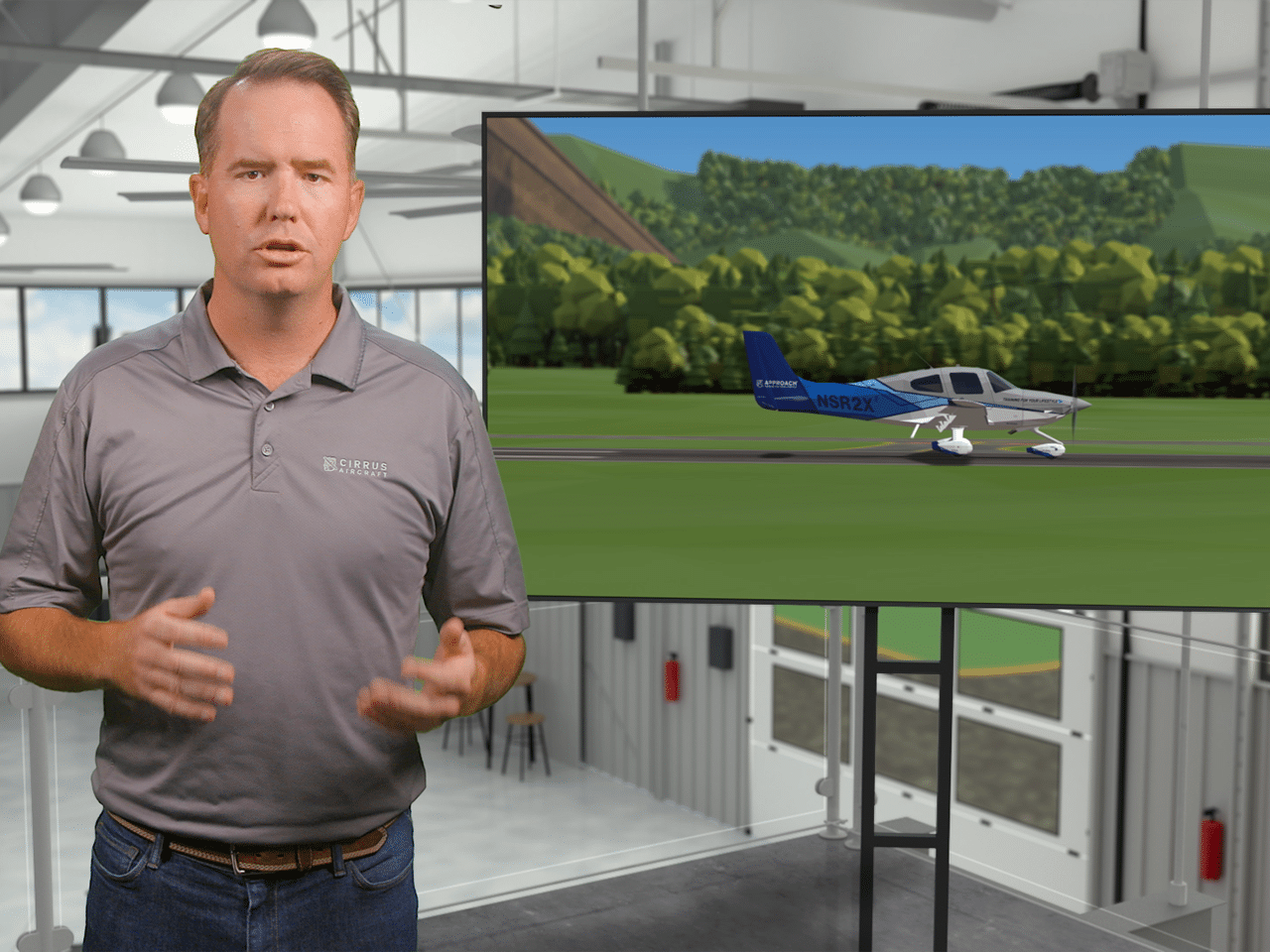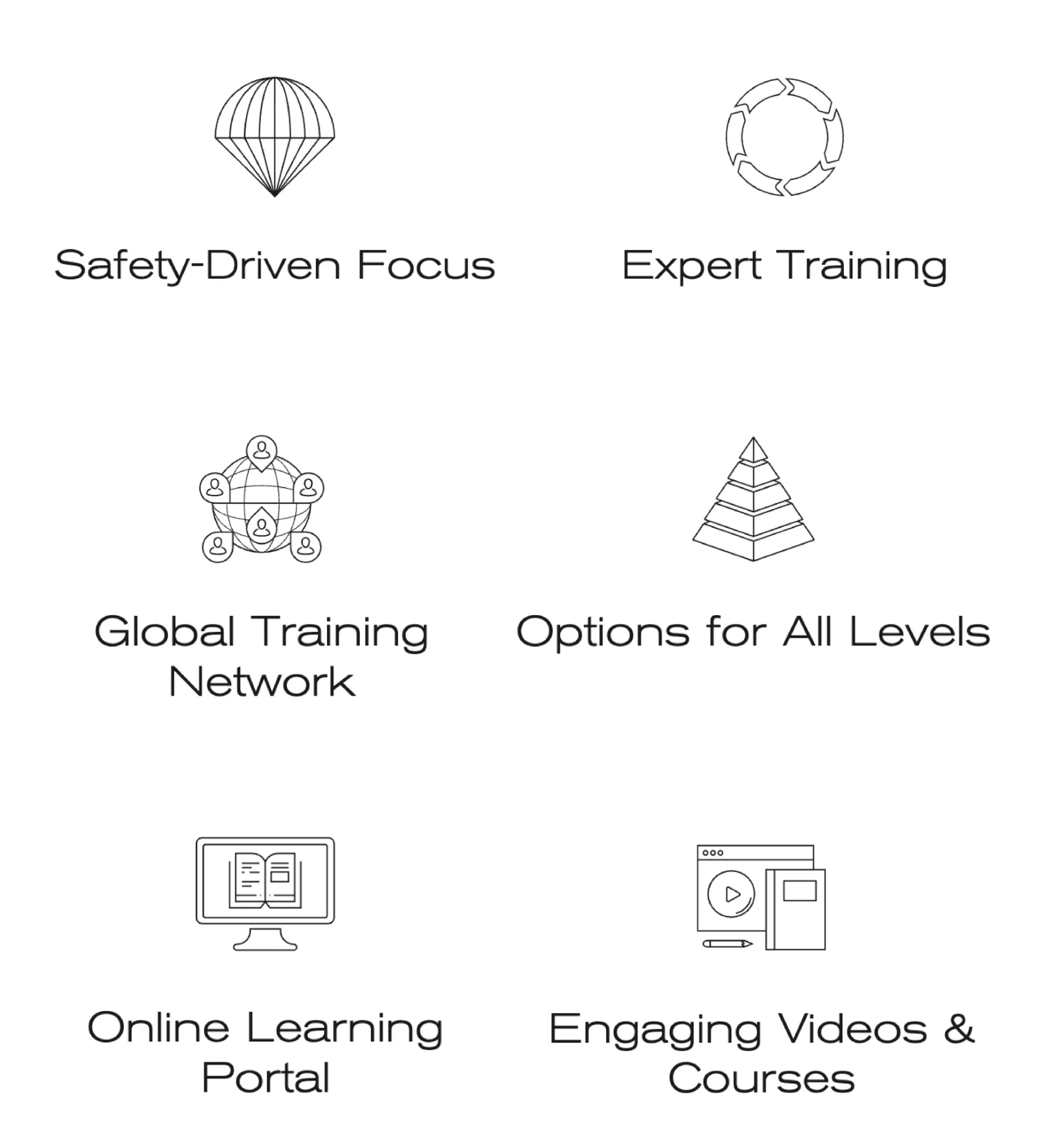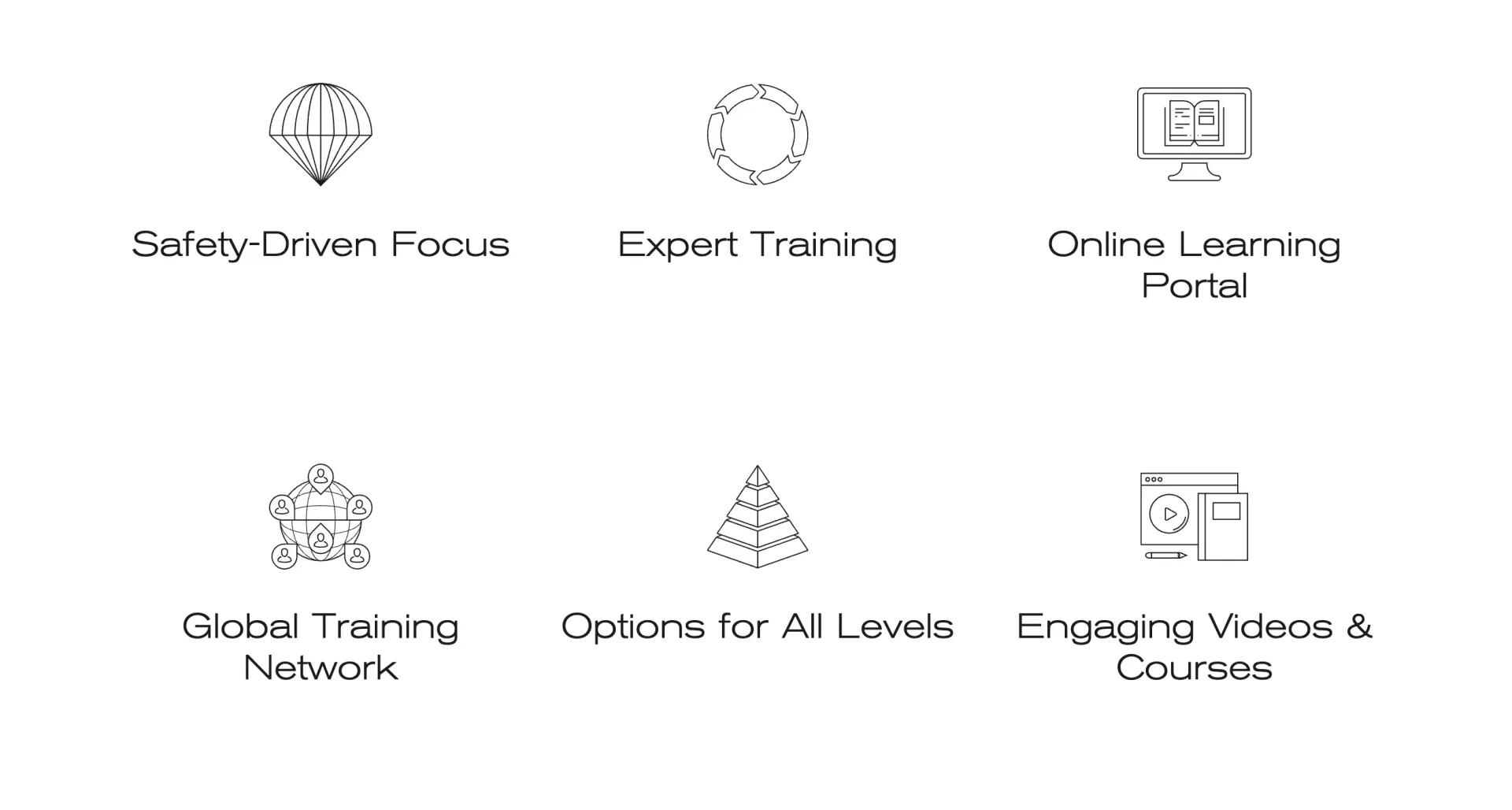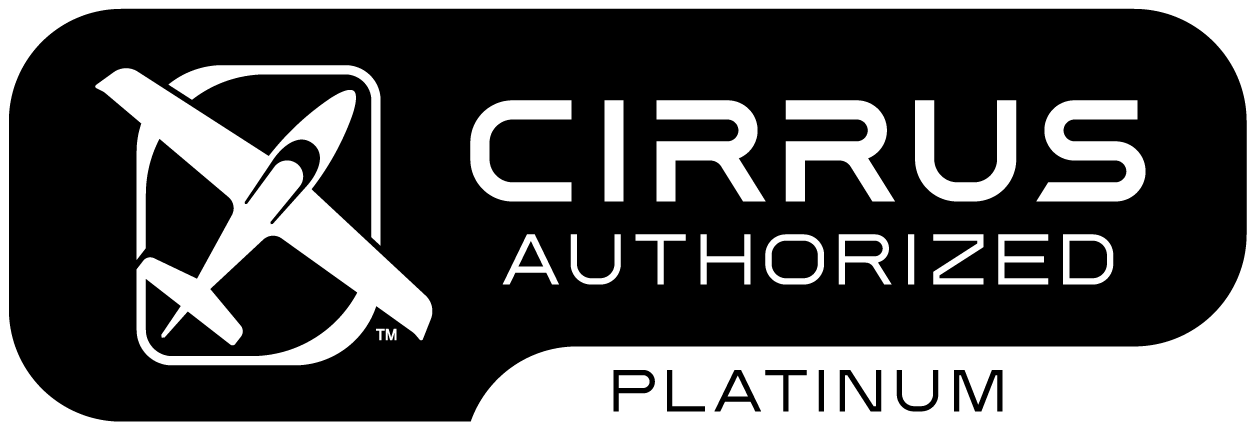CIRRUS TRANSITION TRAINING
CIRRUS TRANSITION TRAINING
Flight Training Where Safety is Standard
The Cirrus Aircraft has been the top-selling plane in its category for the past 15 years due to its advanced composite technology, state-of-the-art avionics, exceptional safety features, user-friendly operation, and speed. This course teaches you how to utilize all these amazing features of the Cirrus to the fullest.
Here are some other reasons why flying a Cirrus have become popular with the USAF and major airlines.
Due to the advanced technology and safety features integrated into the aircraft significant emphasis is placed on your ability to effectively manage these resources so you get the most out of flying your Cirrus.
Actual training time requirements may vary depending on your previous flight experience.
Completion of the course can accomplish the requirements of a flight review.
Flight Training Where Safety is Standard
The Cirrus Aircraft has been the top-selling plane in its category for the past 15 years due to its advanced composite technology, state-of-the-art avionics, exceptional safety features, user-friendly operation, and speed. This course teaches you how to utilize all these amazing features of the Cirrus to the fullest.
Here are some other reasons why flying a Cirrus have become popular with the USAF and major airlines.
Due to the advanced technology and safety features integrated into the aircraft significant emphasis is placed on your ability to effectively manage these resources so you get the most out of flying your Cirrus.
Actual training time requirements may vary depending on your previous flight experience.
Completion of the course can accomplish the requirements of a flight review.
Learn To Fly A Cirrus Aircraft
Whether you’re a student pilot or a licensed aviator, our Cirrus Transition Training courses are designed to help you learn to fly a Cirrus with ease and confidence. New to the Cirrus aircraft or simply looking for a refresher? We have a course tailored to your needs!
Cirrus Transition Courses
-
VFR Transition Course
The VFR (Visual Flight Rules) Transition Course is tailored for both students and licensed pilots who aspire to fly a Cirrus aircraft but have not had the experience of doing so. This course is structured to bridge the knowledge and skill gap for pilots transitioning to Cirrus aircraft under VFR conditions.
Key features of the VFR Transition Course include:
- Operational characteristics specific to Cirrus aircraft
- VFR Maneuvering, takeoffs, and landings
- Avionics and autopilot usage and management
- Aeronautical Decision Making (ADM) and Risk Management
- Cross country flight procedures
- Abnormal and emergency procedures
- Scenarios for use of the Cirrus Airframe Parachute System (CAPS) and Safe Return
- Avionics malfunctions and abnormalities
- Program, configure, and interpret Primary Flight Display (PFD) and Multi-Function Display (MFD) information for normal visual conditions
-
IFR Transition Course
The IFR (Instrument Flight Rules) Transition Course is meticulously crafted for instrument-rated pilots who are venturing into flying Cirrus Aircraft for the first time. This course provides an immersive experience to ensure pilots are adept at handling Cirrus aircraft under IFR conditions. Key features of the IFR Transition Course encompass:
- Cirrus Operational Characteristics
- Maneuvering, Takeoffs, and Landings
- Basic Attitude Instrument Flying
- Avionics and autopilot usage
- IFR operations, procedures, and instrument approaches
- GPS, FMS, and WAAS (if applicable)
- Aeronautical Decision Making (ADM) and Risk Management
- Cross country flight planning and procedures
- Abnormal and emergency procedures
- Avionics malfunctions and abnormalities
By enrolling in the IFR Transition Course, pilots gain the confidence and expertise required to navigate Cirrus aircraft in instrument conditions, ensuring adherence to safety standards and proficient flight operations.
-
Avionics Differences Course
The Cirrus Avionics Difference Course is an intensive training program tailored for pilots who are making the switch to a different avionics package within the Cirrus aircraft lineup. This course offers a deep dive into the nuances of the new avionics system, ensuring pilots are equipped with the knowledge to operate their aircraft safely and efficiently.
Key areas covered include:
- Interpretation of Primary Flight Display (PFD) and Multi-Function Display (MFD).
- Familiarization with the variances in flight management systems
- Proficient use of the autopilot system.
- Understanding the distinctions in aircraft systems.
- Mastery of navigation in Visual Flight Rules (VFR) conditions.
- Enhanced awareness of traffic and terrain.
By participating in this course, pilots can confidently adapt to their new avionics system, ensuring safer flights and better operational understanding of their Cirrus aircraft. Moreover, as avionics technology continually evolves, staying updated through such courses becomes indispensable for modern pilots
-
Airframe & Powerplant Differences Course
The Powerplant and Airframe Differences course enhances your existing Cirrus-centric expertise by emphasizing the following key areas:
- Understanding the distinct operational variations between airframes and powerplants, particularly in terms of performance and handling.
- Preparing for high-altitude flights, especially when transitioning to a turbo or turbo-normalized engine.
- Comprehensive engine management across every flight phase.
- Establishing a robust understanding of aircraft systems, with a special focus on powerplant operations and electrical power generation.
- Effectively handling high-performance aircraft.
- Mastering consistent and safe landing techniques and maneuvers for your upgraded aircraft.
-
Recurrent Training
CAPS Training - Integral to all Cirrus Aircraft is the Cirrus Airframe Parachute System (CAPS). Pilots intending to operate a Cirrus Aircraft should undergo CAPS-focused instruction. Annually, a Cirrus pilot ought to revisit CAPS deployment methods and situations through this program.
Quarterly Skills Review - Undertake this program 90 days post-transition training to reassess and refine the competencies acquired during the transition phase.
Biannual IFR Proficiency Course - Every six months, Cirrus pilots are encouraged to undergo this recurrent training. The aim is to heighten your skills and confidence when navigating your Cirrus Aircraft under IFR conditions. This should be alternated with the Perspective VFR Continuous Training Course at six-month intervals.
Biannual VFR Continuous Training - It's recommended that Cirrus pilots undergo this training every six months. This course covers VFR operations and aspects of the Cirrus Airframe Parachute System (CAPS). For eligible pilots, this should be alternated with the Perspective IFR Continuous Training Course every half year.
*Successful completion of all course objectives will result in a certificate of completion.


Cirrus Transition Courses
-
VFR Transition Course
The VFR (Visual Flight Rules) Transition Course is tailored for both students and licensed pilots who aspire to fly a Cirrus aircraft but have not had the experience of doing so. This course is structured to bridge the knowledge and skill gap for pilots transitioning to Cirrus aircraft under VFR conditions.
Key features of the VFR Transition Course include:
- Operational characteristics specific to Cirrus aircraft
- VFR Maneuvering, takeoffs, and landings
- Avionics and autopilot usage and management
- Aeronautical Decision Making (ADM) and Risk Management
- Cross country flight procedures
- Abnormal and emergency procedures
- Scenarios for use of the Cirrus Airframe Parachute System (CAPS)
- Avionics malfunctions and abnormalities
- Program, configure, and interpret Primary Flight Display (PFD) and Multi-Function Display (MFD) information for normal visual conditions
-
IFR Transition Course
The IFR (Instrument Flight Rules) Transition Course is meticulously crafted for instrument-rated pilots who are venturing into flying Cirrus Aircraft for the first time. This course provides an immersive experience to ensure pilots are adept at handling Cirrus aircraft under IFR conditions. Key features of the IFR Transition Course encompass:
- Cirrus Operational Characteristics
- Maneuvering, Takeoffs, and Landings
- Basic Attitude Instrument Flying
- Avionics and autopilot usage
- IFR operations, procedures, and instrument approaches
- GPS, FMS, and WAAS (if applicable)
- Aeronautical Decision Making (ADM) and Risk Management
- Cross country flight planning and procedures
- Abnormal and emergency procedures
- Avionics malfunctions and abnormalities
By enrolling in the IFR Transition Course, pilots gain the confidence and expertise required to navigate Cirrus aircraft in instrument conditions, ensuring adherence to safety standards and proficient flight operations.
-
Avionics Differences Course
The Cirrus Avionics Difference Course is an intensive training program tailored for pilots who are making the switch to a different avionics package within the Cirrus aircraft lineup. This course offers a deep dive into the nuances of the new avionics system, ensuring pilots are equipped with the knowledge to operate their aircraft safely and efficiently.
Key areas covered include:
- Interpretation of Primary Flight Display (PFD) and Multi-Function Display (MFD).
- Familiarization with the variances in flight management systems
- Proficient use of the autopilot system.
- Understanding the distinctions in aircraft systems.
- Mastery of navigation in Visual Flight Rules (VFR) conditions.
- Enhanced awareness of traffic and terrain.
By participating in this course, pilots can confidently adapt to their new avionics system, ensuring safer flights and better operational understanding of their Cirrus aircraft. Moreover, as avionics technology continually evolves, staying updated through such courses becomes indispensable for modern pilots
-
Airframe & Powerplant Differences Course
The Powerplant and Airframe Differences course enhances your existing Cirrus-centric expertise by emphasizing the following key areas:
- Understanding the distinct operational variations between airframes and powerplants, particularly in terms of performance and handling.
- Preparing for high-altitude flights, especially when transitioning to a turbo or turbo-normalized engine.
- Comprehensive engine management across every flight phase.
- Establishing a robust understanding of aircraft systems, with a special focus on powerplant operations and electrical power generation.
- Effectively handling high-performance aircraft.
- Mastering consistent and safe landing techniques and maneuvers for your upgraded aircraft.
-
Recurrent Training
CAPS Training - Integral to all Cirrus Aircraft is the Cirrus Airframe Parachute System (CAPS). Pilots intending to operate a Cirrus Aircraft should undergo CAPS-focused instruction. Annually, a Cirrus pilot ought to revisit CAPS deployment methods and situations through this program.
Quarterly Skills Review - Undertake this program 90 days post-transition training to reassess and refine the competencies acquired during the transition phase.
Biannual IFR Proficiency Course - Every six months, Cirrus pilots are encouraged to undergo this recurrent training. The aim is to heighten your skills and confidence when navigating your Cirrus Aircraft under IFR conditions. This should be alternated with the Perspective VFR Continuous Training Course at six-month intervals.
Biannual VFR Continuous Training - It's recommended that Cirrus pilots undergo this training every six months. This course covers VFR operations and aspects of the Cirrus Airframe Parachute System (CAPS). For eligible pilots, this should be alternated with the Perspective IFR Continuous Training Course every half year.
*Successful completion of all course objectives will result in a certificate of completion.
Cirrus Transition Training for All Pilot Experience Levels
Our courses are designed for both VFR only pilots as well as those with instrument ratings. With a combination of online learning and in-person instruction from a certified Cirrus Training Center Instructor, you’ll receive a comprehensive education that will help you master the Cirrus Aircraft.
Courses Designed by Cirrus Aircraft Delivered by Expert Cirrus Training Center Flight Instructors
Our courses are created by Cirrus to provide you with the skills and knowledge you need to fly with confidence. With hands-on experience, online interactive learning and expert guidance, you’ll be ready to take to the skies in no time.



